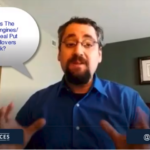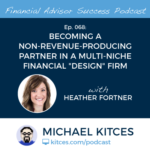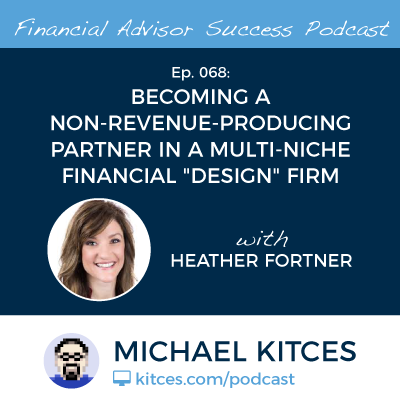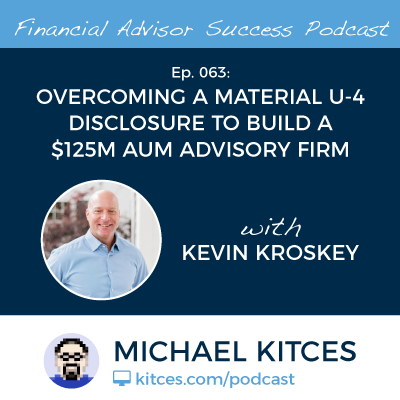
The blockbuster announcement in the RIA space this week was that private equity firm Hellman & Friedman is buying Financial Engines and taking it private for a whopping $3 billion dollars in cash, and in the process will be merging it with mega-RIA Edelman Financial – of which Hellman already owns a majority stake from a purchase back in 2015 – to make a new combined entity of both Financial Engines and Edelman Financial. Which is a mega deal not just because Financial Engines got bought for $3 billion dollars (and has an estimated $169 billion of assets under management in the managed 401(k) space) but also because Edelman Financial itself has $21 billion under management and is one of the largest independent RIAs in the country with almost 35,000 clients of their own for whom they do investment management and financial planning, with more than 100 (human) financial advisors.
In this week’s #OfficeHours with @MichaelKitces, my Tuesday 1PM EST broadcast via Periscope, we explore the implications of this massive deal to pair together managed 401(k) accounts with human financial planners (at a size and scale that few others besides perhaps Fidelity have ever even attempted), and particularly how this may be the beginning of the end of advisors growing their businesses through 401(k) rollovers!
First and foremost, thouggh, it’s worth just recognizing that a brilliant deal it really is for Financial Engines to be merged with Edelman Financial. From the Financial Engines perspective, this is an opportunity to add a new higher “financial advice” service tier to its top 401(k) clients, in a world where they’re reportedly only charging between 0.2% to 0.6% for their managed account service, but Edelman’s fee schedule starts all the way up at 2%. Of course, what Edelman charges individual retail clients and what Edelman will charge for advice "distributed" through 401(k) channels as an enterprise-level advice solution will likely be different, but the point remains that the pricing power of human financial advisors providing personal financial planning advice is much stronger than "just" managed accounts with great technology. And from Edelman Financial's perspective, this deal also looks like a huge win to me. Because the magic question for years with Edelman Financial has been how will Edelman Financial grow without Ric Edelman (since Ric's books, radio show, and speaking generate so much growth)? The answer: Give Edelman Financial an opportunity to be distributed to the one million clients that Financial Engines already serves (or about 30X the size of Edelman’s client base!).
From the broader industry perspective, though, it's important to recognize the significance that the company that is arguably the original robo-advisor has been buying a series of human advisory firms – first the Mutual Fund Store in 2015, and now Edelman Financial – to deliver increasingly sophisticated human financial advice to their “robo” clients. In other words, even robo-advisor platforms are recognizing that technology is better as a means to augment human advisors than compete against them – a prediction I had made back in 2012.
In addition, the fact that Financial Engines is moving deeper into the (higher-priced) human advice business also suggests that the robo-advisor price point isn’t actually going to be the end point for financial advisors after all. Despite fears that all advisors were going to need to drop their fees to 25 basis points from the popular 1% AUM fees, it appears instead that robo advisors were actually pricing too low all along, and now are increasingly looking for ways to add more human services so that they can charge fees closer to the traditional 1% AUM fee that human advisors were charging. Or stated more simply, human advisors aren't capitulating to robo-advisor prices; instead, robo-advisors are capitulating towards human advisor prices (and blending in the human advisor value proposition).
All that being said, though, the biggest trend being portended by this Financial Engines and Edelman Financial deal is one that the industry has missed so far. And that trend is that the rise of human financial advice solutions directly in the 401(k) channel (as Financial Engines is ostensibly going to soon offer through Edelman Financial), which could be the beginning of the end of the 401(k) rollover bonanza. Because historically, defined contribution plans were self-directed... which meant that consumers both accumulated their wealth in a retirement plan, and didn't have an advisor help with that retirement plan, such that the act of retiring was the “money in motion” event that financial advisors have used for the better part of 30 years to grow their businesses. But with firms like Edelman providing human financial advice in the 401(k) channel, retirees will increasingly no longer need to find an advisor at retirement, as they'll just continue with the advisor they have had all along with their existing 401(k) plan. As a result, the entire market opportunity for independent financial advisors to grab 401(k) rollovers for unaffiliated consumers that don’t have an advisor, may begin to vanish.
Ultimately, this does not mean that firms will have no opportunities to win business away from RIAs serving clients in the 401(k) channel, but it will mean that firms will need a (more) compelling reason to do so (e.g., by serving clients through a well-defined niche or specialization). But the key point is to acknowledge that the announced acquisition of Financial Engines, and merging of Edelman Financial into Financial Engines, is an indication that we could be seeing the beginning of the end of the 401(k) rollover bonanza, as financial advice shifts into the 401(k) channel itself, rather than just for rollovers from 401(k) plans!













